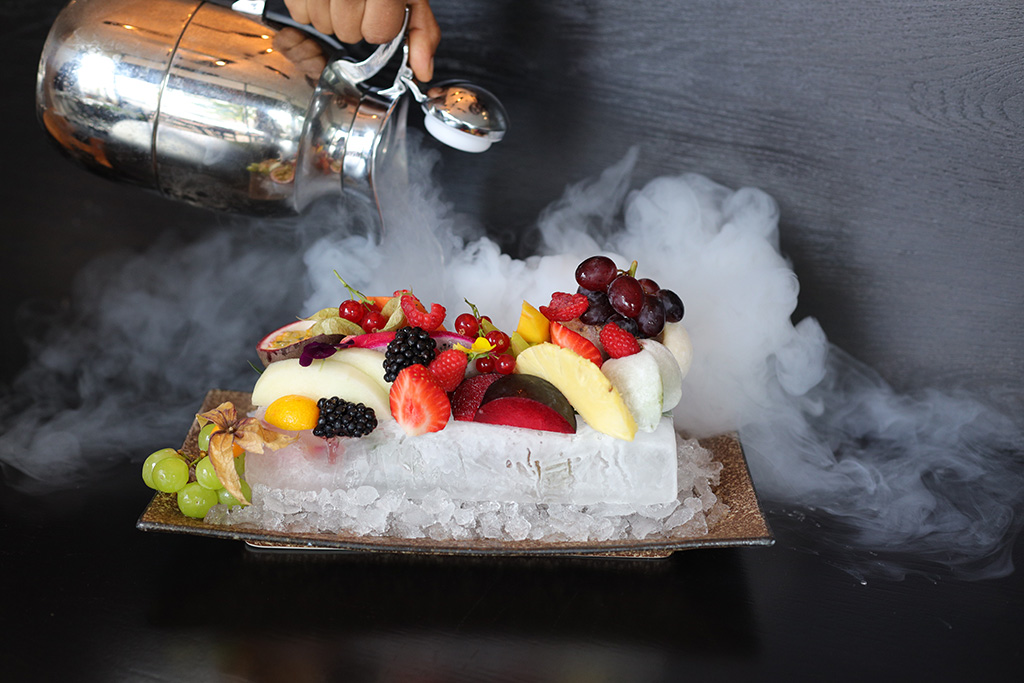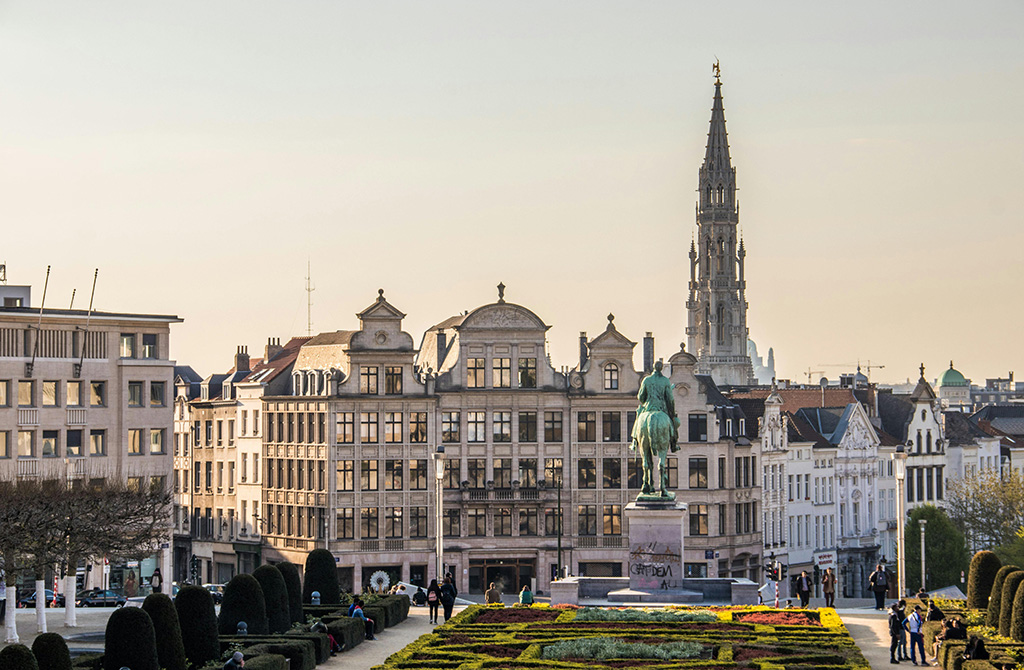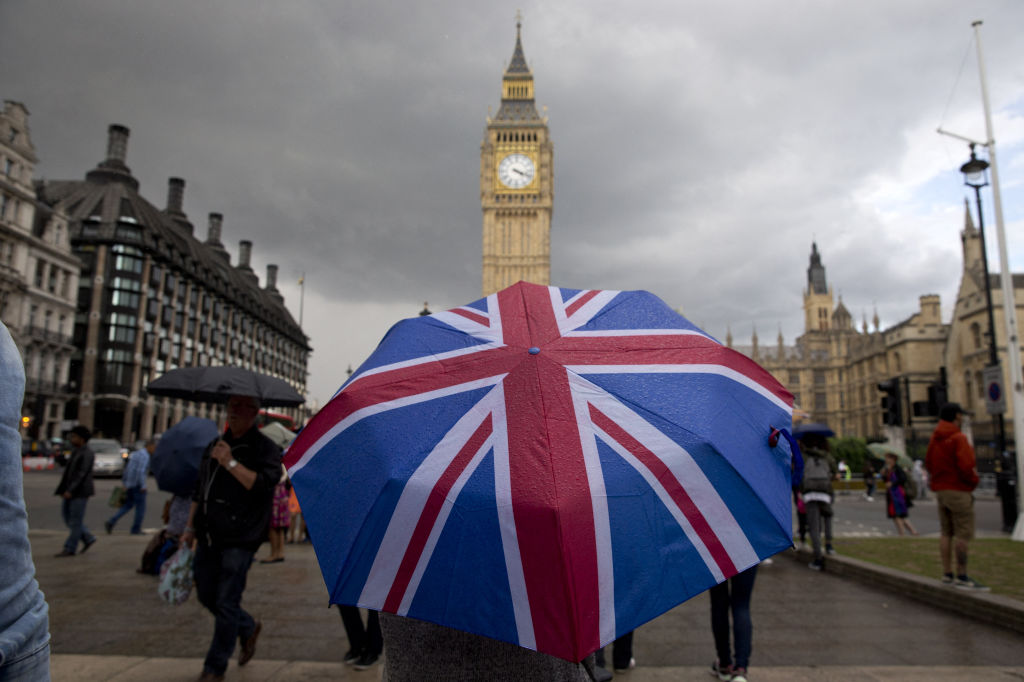Brexit, the gift that keeps on giving: from June 14, 2024 to January 2025, a reduced Eurostar service will run between London and Amsterdam. Why? Part-closure of Amsterdam Centraal leaves no space for the extra bureaucracy now necessary. Passengers returning to London will change at Brussels to go through security and passport checks, adding up to almost two hours of extra journey time.
Global travel booking platforms such as OMIO have reported a surge in train travel in recent years. Cheaper prices (compared to flying) and environmental concerns are cited as the main drivers. But Eurostar’s capped passenger numbers and indirect routes will surely increase air travel in 2024, literally flying in the face of Dutch sustainability policies. On average, the carbon footprint of traveling via Eurostar is ninety-five times less that of flying. I say, ameliorate the pain — and climate guilt — by embracing “slow travel” instead. A weekend in Belgium, huh? Why not?
Often dubbed, well, a bit dull, I recently discovered Brussels has a lot to offer besides beer and a tiny connecting station. Stop off for a night or two and stroll around the Mont des Arts museum, waft through Tenbosch Park and sample the city’s gamut of great natural wine bars. The latter provide plenty of dark corners to hide in when it starts raining (and for Brits like me to weep over the loss of their border privileges).
First, Brussels…
The first thing I saw in Brussels was a sandwich board proclaiming a universal truth: “You can’t make everyone happy. You are not a waffle.” It had the desired effect, making me crave one so badly I walked directly to the Grand-Place, not to stare mouth agape at the fourteenth-century architecture, but to order a “Brussels waffle” from Maison Dandoy on Rue au Beurre. Tourist trap it is, but you can expect caramelized, crispy perfection, every time.
Trappist and Abbey beers go down well after a long journey, too (I know I said Belgium has more to offer than beer, but the culture is so intrinsic, it was recognized by UNESCO in 2016). Wander the few minutes to Moeder Lambic, a tap bar (unusual for Belgium) with an unsurprisingly great selection of Lambic brews, before thinking about setting your bag down.
Where to stay
If it’s your first time in the city, I’d recommend the traditional, five-star Hotel Amigo. Your friendly neighbor is Manneken Pis, the “urinating boy” statue meant to signify the City of Brussels’s rebellious spirit.
Hotel Amigo is the sort of hotel where a kind porter is always on hand to offer you an umbrella. Richly appointed rooms are clean and comfortable, decorated with Magritte-inspired carved wooden apples and Hergé prints. Fine bathrooms feature Carrara marble and an array of lotions and potions by Irene Forte. On a wet day, I’d recommend walking to punk bookshop Rile Books, picking up something unusual, then making a beeline “home” to the bathtub.
Downstairs in Ristorante BoCConi, Italian flair meets Belgian chic. You might choose crudo of red prawns on a Himalayan pink salt stone, tuna roast beef tonnato (my personal favorite) or roasted cauliflower with caper hollandaise. Candlelit Bar Margritte serves up expertly shaken cocktails while live music plays.
What to do
A fifteen-minute walk from the hotel lies Royal Museums of Fine Arts of Belgium, housing more than 20,000 works. But I’d walk further South to the Marolles, dotted with vintage trinket shops (and techno clubs, should that be your scene).
Where to eat
Brussels’s best eateries are scattered far beyond the famous city square. I’d spend a blissful day flitting around one particular cluster in trendy Ixelles, starting with pastries and a stellar matcha latte at Roselyne tea house, continuing with lunch bento at Michelin-starred Japanese Kamo or grabbing a snack at atmospheric Vedat.
A standout spot in this area is Pénar, a restaurant and “lively” wine cellar with more than 300 bottles practically spilling out. A trio of chefs focus on simple, raw and seasonal products — try salmon trout, halibut or lamb with sweet potato and pomegranate.
Where to drink
Have a taxi deliver you to the chi chi area of Saint-Gilles, ten minutes from the Grand-Place. Drop into independent galleries like Damien & The Love Guru before joining trendy folk on the corner by Place Morichar.
At Calmos, in-the-know locals choose from the bottles of natural wine decorating the walls. Glasses start at just €3.50 — I loved a 2020 Rita & Rudolf Trossen “Lay Purus” Riesling. The blackboard is covered in simple, honest snacks made locally; I adored the pâté au piment d’Espelette, looking beautiful served up in its little box. Leafy Parc Duden is close by, full of shady trees to nap under.
And then in Amsterdam…
First things first, pick up a City Card (€85 for forty-eight hours) which is actually really good value, giving you access to more than seventy museums, unlimited city-wide public transport and a canal cruise. Bike rent is included, too — essential if you want to blend in.
I’d prioritize getting in line at the moving Anne Frank House, then wandering along the Prince’s Canal in Jordaan for the best photographs. Next I’d wheel over to De Negen Straatjes, found in UNESCO World Heritage Site the Grachtengordel.
The oldest of Amsterdam’s semicircular ring of canals, from 1480 until 1585 it acted as a moat around the medieval city. Nowadays the area is heaving with hipster cafés, jewelry shops and tattoo parlors — you could spend an entire day leafing through notebooks and trying on edgy clothes you’ll never buy.
What to do
You might have missed your chance to check out the once-in-a-lifetime Johannes Vermeer exhibition at the impressive Rijksmuseum., but it still houses a litany of noteworthy pieces. On the way, line your stomach at Et Claire, dedicated to crafting world-class viennoiserie (French baked goods made from a yeast-leavened dough). In Et Claire’s words, baking is “a complex art that requires love, skill, and time,” quite evident when biting into a flaky Pain au Za’atar, marrying soft goat cheese and aromatic Za’atar herbs. I think about their Double Baked Pecan Caramel on a weekly basis.
Where to eat
A stone’s throw from the Hoxton (more on that later) flashy Mr Porter is your best bet for great steak. Admittedly extravagant, the lounge-like restaurant lists the likes of feuille de brick and roasted aubergine grated egg just for starters. My favorite carpaccio has to be the Jamon de Bellota Iberico, and as for the beef, boldly displayed in a glass-walled fridge, it’s the Japanese Waygu A3. Sold in units of 100g: go big or go home.
Forgot to pack your heels? Head to pared-back neighborhood bistro Restaurant Arles, on the shy and retiring side of De Pijp. A surprising selection of wines and Vins Nature complements four courses for just €57 Euros. Try beet and trout roe, cod with cabbage and yuzu, and riz au lait — a delightful combination of caramel, vanilla and nuts.
Where to drink (and eat)
Izakaya is an authority on Asian food within Amsterdam’s gastronomic scene, elevating the traditional Japanese dining experience. Right in the middle of the “vibrant” AKA “controversial” De Pijp district, the vibe isn’t far off your Sexy Fish and Sushi Sambas, a DJ spinning house music for a dressed up crowd. Meat, fish, fresh sushi and sashimi are prepared on a traditional Robata grill or via a Hibachi fire bowl (Japanese hot plate), and given a South American twist — resulting in some truly unforgettable flavors.

A range of house-infused tonics use Japanese Shochu as their base. Crispy rice and open-style gunkan tuna toro accompanied my first drink, a Pisco Morada cocktail combining the sweetness of chicha morada with punchy hints of Pisco. Salmon, yellow tail and sea bass sashimi was excellent, followed by shrimp tempura uramaki and mushroom toban.
Where to stay
In the beating heart of the Nine Streets area on the glitzy Keizersgracht canal, The Dylan has to be the finest place to rest your head in Amsterdam. Oozing class, but totally unstuffy, the four different room styles are a lesson in old-world architecture meeting modern chic. Grown up Luxury Suites are sized from 646ft², with King size beds, garden and canal views and deliciously deep baths. Fire up the Illy espresso maker and head out into the night, or dig into the Aesop bath amenities, turn up the B&O sound system and soak.
Hotel restaurants rarely get it this right: intimate two Michelin-starred Restaurant Vinkeles offers modern French cuisine. I slurped ramen noodles at Bar Brasserie OCCO, but wish I’d stuck around to try the “High Wine” experience, a flirty take on high tea.

Slow travelers, take note. The Hoxton hotel group has introduced a sustainable travel incentive scheme. The Good Rate rewards discounted rates to guests who choose to travel to their hotels by rail. Even better, there are two sites in Amsterdam — one bang Central, and one in the East Docklands. You can count on both for a roster of in-house events and chic East London-style décor — the best choice if you want to stay up late and make new friends.
A fifteen-minute walk from Amsterdam Centraal, I’d still recommend the original for a first visit, for easy access to The Herengracht. Both spots offer reliably good food, effortlessly cool crowds and in-the-know staff; hit them up for recommendations and you’ll be inundated with off beat ideas like Skate Café, or rocking up to oyster happy hour at the Hoxton Lloyd (every weekday from 3-6 p.m.). And guess which city was deemed hot enough for a Hoxton opening in 2023? Brussels, of course…
Amy traveled from London to Amsterdam via Brussels with global travel platform OMIO.


























Leave a Reply